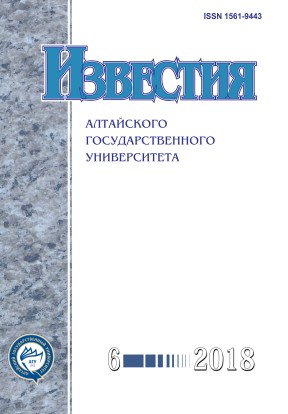Legal Techniques as a Tool of Preparation of Qualitative Regulations
Abstract
This article describes the legal technique as an intersectoral scientific direction: tools, methods and its role in the development of legislative acts; distinguishes its main elements and constituent parts. The authors present the present views on this notion, scientific positions regarding these definitions of various authors and considers the concept of legal technology. These concepts are considered in parallel, their differences and applicability are described in the framework of the creation of qualitative regulatory legal acts. Legislative activity is presented as a means of building a legal, just state, ensuring state sovereignty, stability of the power of social justice in society. The need to measure the quality of such activities is described. The notion of jurisprudence as a set of tools for assessing the quality of normative legal acts is given, and legal technology is presented as key tool of jurisprudence that allows examining legislation to improve it. The need for the development of legal equipment is described. The concept of legal technique in the meaning of legal engineering as a tool for improving the quality and effectiveness of legal (legal) solutions is given.
Downloads
Metrics
References
Дух римского права на различных ступенях его развития : пер. с 3-го, исправл. нем. изд. — Ч. 1. — СПб., 1875.
Алексеев С.С. Общая теория права. — М., 1982. — Т. 2.
Бахвалов С.В. Законодательная технология (некоторые проблемы теории и методологии) : автореф. дис. … канд. юрид. наук. — Н. Новгород, 2006.
Белов В.М. Новая отрасль юриспруденции — юрисметрия // Современная наука: актуальные проблемы и пути их решения : тр. Междунар. дистанцион. науч. конф. — Липецк, 2014.
Белов В.М., Косов Д.Л., Зырянова Е.В. О юрисметрии как мультидисциплинарном направлении научных исследований в юриспруденции // Вестник Алтайской академии экономики и права. — 2016. — Вып. 2 (44).
Васильева Н.В. Юридические и неюридические средства в системе правового регулирования : автореф. дис. … канд. юрид. наук. — Омск, 2014.
Давыдова М.Л. Юридическая техника: проблемы теории и методологии : моногр. — Волгоград, 2009.
Долотова Д.В. Техника и технология правовых актов (на примере правовых актов, издаваемых в уголовно-исполнительной системе) : автореф. дис. … канд. юрид. наук. — Владимир, 2016.
Жинкин С.А. Законодательная техника в региональном правотворчестве (теоретический аспект) : автореф. дис. … канд. юрид. наук. — Краснодар, 2000.
Картухин В.Ю. Технико-юридическое качество законов субъектов Российской Федерации : автореф. дис. … канд. юрид. наук. — М., 2005.
Кашанина Т.В. Юридическая техника : учебник. — 2-е изд., пересмотр. — М., 2011.
Красавчиков О.А. Советская наука гражданского права (понятие, предмет, состав и система) // Категории науки гражданского права : избр. тр. : в 2 т. — М., 2005. — Т. 1.
Краснов Ю.К., Надвикова В.В., Шкатулла В.И. Юридическая техника : учебник. — М., 2014.
Мамедов Э.Ф. Термины и дефиниции как средства юридической техники правотворчества : дис. … канд. юрид. наук. — Иркутск, 2015.
Овчинников Н.В. Интерпретационная юридическая техника // Молодой ученый. — 2015. — №3.
Червонюк В.И. Теория государства и права : учебник. — М., 2007.
Черданцев А.Ф. Теория государства и права. — М., 1999.
Чернова Е.С. Институт экспертизы как средство совершенствования юридической техники в правотворчестве ЦИК РФ: теоретический и историко-правовой анализ : автореф. дис. … канд. юрид. наук. — Краснодар, 2011.
Шарно О.И. Правовые символы как средства правоприменительной техники : автореф. дис. … канд. юрид. наук. —Саратов, 2014.
Юков М.К. Место юридической техники в правотворчестве // Правоведение. — 1979. — № 5.
Ожегов С.И., Шведова Н.Ю. Толковый словарь русского языка. — М., 2000.
Красинский В.В. Качество российских законов // Право и политика, — 2005. — № 5.
О статусе военнослужащих : Федеральный закон от 27 мая 1998 г. № 76-ФЗ // Российская газета. 1998. — 2 июня.
Конституция Российской Федерации : принята всенар. голосованием 12 декабря 1993 г. // СЗ РФ. — 2009. — № 4.
Izvestiya of Altai State University is a golden publisher, as we allow self-archiving, but most importantly we are fully transparent about your rights.
Authors may present and discuss their findings ahead of publication: at biological or scientific conferences, on preprint servers, in public databases, and in blogs, wikis, tweets, and other informal communication channels.
Izvestiya of Altai State University allows authors to deposit manuscripts (currently under review or those for intended submission to Izvestiya of Altai State University) in non-commercial, pre-print servers such as ArXiv.
Authors who publish with this journal agree to the following terms:
- Authors retain copyright and grant the journal right of first publication with the work simultaneously licensed under a Creative Commons Attribution License (CC BY 4.0) that allows others to share the work with an acknowledgement of the work's authorship and initial publication in this journal.
- Authors are able to enter into separate, additional contractual arrangements for the non-exclusive distribution of the journal's published version of the work (e.g., post it to an institutional repository or publish it in a book), with an acknowledgement of its initial publication in this journal.
- Authors are permitted and encouraged to post their work online (e.g., in institutional repositories or on their website) prior to and during the submission process, as it can lead to productive exchanges, as well as earlier and greater citation of published work (See The Effect of Open Access).








